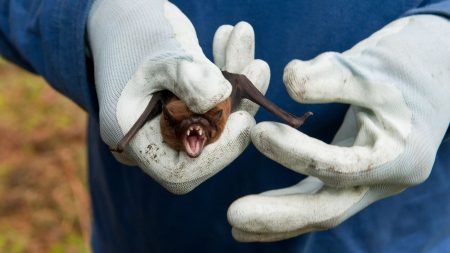The UK is experiencing a concerning rise in measles cases, particularly in Bristol, where at least 21 infections have been confirmed since mid-December 2023. This localized outbreak contributes significantly to the national total, with the southwest region accounting for nearly half of the 57 cases reported across the country. Health officials are urging parents to ensure their children receive the measles, mumps, and rubella (MMR) vaccine, emphasizing the highly infectious nature of measles and its potential for serious complications, including, in rare cases, death. The UK Health Security Agency (UKHSA) has expressed concern over this rapid increase, noting that measles has been circulating nationally for the past year, with a concentration of cases emerging in the southwest during November and December. This recent surge follows a significant outbreak in the West Midlands in 2023, primarily centered in Birmingham, which experienced its worst measles outbreak since 1996. The current situation underscores the importance of maintaining high vaccination rates to prevent further spread of the disease.
The resurgence of measles is linked to a decline in MMR vaccination rates, which have fallen below the 90% threshold for two doses. This drop raises concerns about the potential for wider outbreaks. Measles spreads easily, especially in settings like nurseries and schools where unvaccinated children are in close contact. The disease can have severe consequences, leading to hospitalization, lifelong complications, and even death in some cases. Early symptoms include a runny nose, red rash, tiredness, sore red eyes, fever, and small greyish-white spots in the mouth. While many individuals recover fully, measles can cause serious complications affecting the lungs and brain, such as pneumonia, meningitis, blindness, seizures, and encephalitis. Vaccination is crucial for protecting individuals and preventing the spread of measles, especially to vulnerable populations.
In January 2024, the UKHSA declared a national incident due to MMR vaccination uptake falling to its lowest level in over a decade. The UK’s two-dose coverage has dipped below the 95% target needed to prevent measles transmission, prompting a national catch-up campaign launched in November 2023 and intensified in the following months. The importance of addressing vaccine hesitancy is underlined by public health expert Professor Helen Bedford, who provides information to alleviate parental concerns. She emphasizes that MMR vaccination is safe and effective, having been used in the UK since 1988.
The MMR vaccine is administered in two doses as part of the routine childhood immunization schedule. The first dose is given around one year of age, as maternal antibodies wane around this time, and the second dose is given at three years and four months, before children start school. Vaccination records can be found in the Personal Child Health Record (red book) or obtained from a GP. It is never too late to receive the MMR vaccine, and anyone who missed doses in childhood can schedule an appointment to catch up.
The MMR vaccine uses weakened live versions of the measles, mumps, and rubella viruses to stimulate the immune system to produce protective antibodies. While mild side effects like rash, fever, loss of appetite, and general malaise can occur for a few days, serious allergic reactions are extremely rare. The benefits of vaccination far outweigh the risks, especially when compared to the potential complications of measles infection. Professor Bedford also addresses a historical misconception linking the MMR vaccine to autism. A 1998 study published in The Lancet, which suggested a connection, was later retracted and found to be fraudulent.
Finally, regarding concerns about the vaccine’s ingredients, two versions of the MMR vaccine are available: one containing gelatin derived from animal/pig collagen and one that is gelatin-free. Individuals with religious objections to pig products can request the gelatin-free version. The availability of this alternative ensures that everyone can benefit from the protection offered by the MMR vaccine without compromising their beliefs. Overall, health officials and experts are working to combat misinformation and encourage vaccination to prevent the further spread of measles in the UK.











